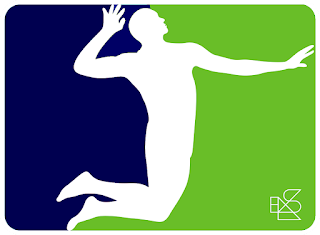Questioning is Important
Questioning is important
Developing a 'Beginner's Mind' is important. Looking at problems without limiting possibilities is important. 'Self perceptions of expertise increase closed minded cognition.' Ok, makes sense.
I've been fortunate to grow up in an environment where in my group of critical friends everything is always questioned, to the point where people have complained about the fact that we were always asking questions. On the other hand, if 'experts' have closed minds and they hear a theory for which they know reputable research refutes, the only possible solution for this is that they are closed minded, right? So, never trust an expert who disagrees with you, they have lost their beginner's mind? No, but having a questioning mind is important.
Questioning is important
Research is important. But if you question everything, when do you stop? You have to stop at some point. Don't you?
A great (and very blunt) coach I used to work with was in an important meeting with sports science and sports medicine experts from around the country. He was asked what SSSM could do to help his program. He cleared his throat and started a story: imagine you are doing some research on a hippopotamus diet so you think, 'I'm going to see what is up the hippo's arse.' You use your microsope to look, and you see a mouse and you think, 'I wonder what is up the mouse's arse.' So you use your microscope and you see a gnat and think, 'I wonder what is up the gnat's arse.' Well, and he clears his throat again, eventually you need to stop and ask yourself the question, 'why am I looking up a gnat's arse?' Research is important though.
Questioning is important
Answering is important too. If someone asks a question and you know the answer. You should share it, right? This is a ridiculously simplistic example but bear with me:
- What's 7 times 8.
- 56.
- Are you sure it is 56?
- Yup, 56.
- I feel like it might be 78?
- It isn't, it's 56.
- What evidence to you have of that?
- Umm....math?
- So you are an expert in math?
- Well, I don't know about 'expert' but I'm a math teacher.
- I think you know where I'm going with this......
Questioning is important
Decision making is important too. In coaching (and life) you need to make decisions. Sometimes you know you don't know the answer, so you keep looking and keep looking. But as Einstein said, this is the definition of insanity (or did he?). It is also the definition of determination and perseverance and relentlessness. Still, as I was saying, you keep looking. But what if you need to make a decision tomorrow? Or next week? Or yesterday? Well, you go with the best evidence you can find at the time. You work out what is solid evidence from reputable sources, what is most likely to give you the outcome you want, and you commit to it. And you keep looking to see if there are better options. In coaching you can't put off decision making indefinitely. Decision making is important.



Comments
Post a Comment